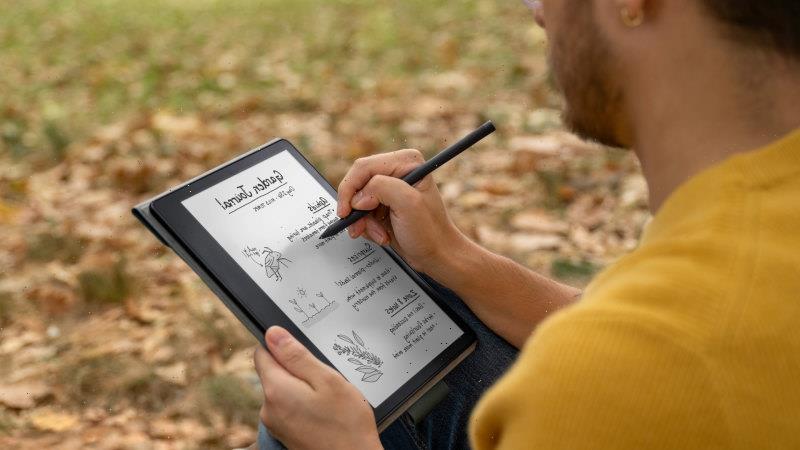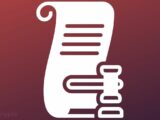
I love my Kindle but I’m turning it off this summer
January 1, 2023Like many, I veer wildly between being wary of the effects of technology and elbowing people in the face outside of Apple shops on the days a new iPhone drops. I’m no troglodyte (though putting QR codes on cafe tables instead of menus is an abomination).
As we work through everyone’s “best of” book lists for 2023, I’ve been reflecting on my reading habits. The Kindle was my shining (paper white) light in the murky waters of technology. When I ran out of room on my bookshelf one day, it seemed like the natural next step. As many books as I wanted, unbound by the physical space on a shelf – what a dream.
Ahh-book.Credit:Matt Golding
I could highlight passages and return to them at ease, read late into the night in a dark room next to a snoring partner and pop it in my handbag for doctor’s waiting rooms (whilst also feeling smug that I’m slightly superior to those phone-screen-staring zombies next to me). I could read a tantalising review of Liane Moriaty’s latest hit and download it five seconds later. It also appealed to my general tight-assery: ebooks are always cheaper than physical books.
But I’ve noticed recently that my attention has become seriously impaired. I find myself unable to finish a book, even one I’m thoroughly enjoying. I skim through chapters and then get distracted and start reading another book. I even get bored halfway through reading my kids books, like we know where the green sheep is already.
Johann Hari’s book, Stolen Focus, released this year, has a chapter titled, The Collapse of Sustained Reading. “One of the simplest and most common forms of flow that people experience in their lives is reading a book – and, like other forms of flow, it is being choked off in our culture of constant distraction,” he writes.
Books, especially long, sprawling fiction books, were my talisman, casting me into worlds beyond worlds where time would melt away. I started to feel like I’d been cut off from this oasis, this magical place I used to escape to, and watching Emily in Paris on Netflix just wouldn’t cut it. I had lost the ability to get into that deep meditative state.
We are at the beginning of an epoch in the way we read and how our brains process information. As Maryanne Wolf, author of Reader, Come Home, writes, “together, we stand at the threshold of galactic changes over the next few generations.” She applies the science of neuroplasticity to how our ‘reading brains’ are being changed by the technology we’re using.
If the medium is the message, as Marshall McLuhan famously said, then my Kindle was just another screen that my brain was trained to skim, not absorb. I was reading in the same way that I interacted with my phone: bouncing around from emails to texts to news stories.
I decided to start buying physical books again; maybe something in that would help. I bought Robbie Arnott’s beautifully evocative Limberlost and told myself that instead of just reading a story, I was immersed in a time of meditation: this was basically #selfcare. The weight of a book in my hands, the smell, and the sound of paper turning were all parts of the experience that I would focus on. Even the higher cost of a physical book might help me value it more.
Reader, it worked. Something about reading with a different intention started to change my brain.
“The physical realness of books contributes to our ability to enter the space where we can dwell unjudged with our hard-won thoughts and multilayered emotions and feel we have found our way home,” Wolf writes.
Immersed in a book.Credit:iStock
I don’t think the Kindle is a problem in itself, but the way my brain was treating it was. Reading is one of those few places we can still return to, to rest our tired brains, and as this year draws to a close, we have an opportunity to find our path back to the oasis.
Cherie Gilmour is a freelance writer
The Opinion newsletter is a weekly wrap of views that will challenge, champion and inform your own. Sign up here.
Most Viewed in National
From our partners
Source: Read Full Article




